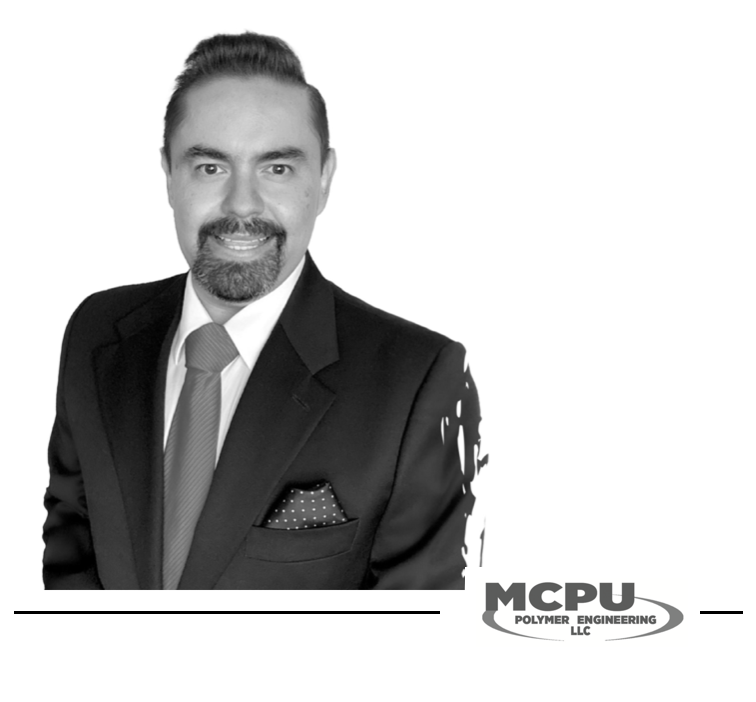By: Gustavo Lomas
North America Marketing and Sales Director
MCPU POLYMER ENGINEERING
Could it be that these two trends should be confronted? Many people have talked about this topic, and the title of this article indicates that perhaps the two roles are opposites. From my point of view, however, they are complementary roles, both equally necessary in an organization. They are two sides of the same coin that represent equally important functions that cannot survive without each other. They enrich and strengthen each other and that in fact interweave the personality of a team, company or society according to the way in which they develop and perform.
There is no doubt that since we were young, we have been taught that we must be leaders, that we must develop skills that allow us to lead our lives and those of others into the future. We must create a vision, inspire others, and in some way influence society or the organization in which we participate. But little is said about the managerial or directive skills that are equally necessary. They are reviewed from a very theoretical point of view, and professionals are left to learn them on a daily basis and to perfect them in postgraduate courses in a more technical way.
I truly believe that in this country we need to develop both skills in a more serious way. The subject of leadership or management tools taught in universities presents it in a very general, theoretical and to some extent in a terse way, without putting the knowledge into practice. Recent graduates often think they already have all these skills by the mere fact that the “subject” was in their study plan. We need to get involved with the new generations of employees and create a new way of living these two roles simultaneously and that once and for all they understand that both are equally important when it comes to developing plans that take organizations to another level.
For me being a leader in the field of marketing is exciting. At first, only one word resonated in my head: Influence. In marketing there is a lot of discussion about influencing audiences and potential clients to get them to carry out actions that, in one way or another, contribute to achieving and reaching the goals that have been planned. So as soon as I started to hold senior-level positions in companies, I only had in mind the notion that I would influence both internally and externally. Almost immediately when I started preparing for these roles another thought came to mind: Inspire. Should it be only on a professional or also on a personal level? What should I do first, influence or inspire? Will I really be able to do it or where can I learn to do it? In short, a lot of questions came to mind and although I did not show any concern about it, inside I felt an overwhelming need to know how to do it. I already considered myself a good leader, based on what I had learned in theory at my university and in my postgraduate studies, but was that all I needed to know and simply apply it?
It was there that I learned my first real lesson in leadership, which went hand in hand with management. I had been forging the whole idea of being a good leader, a good manager, a good director around myself and not around others. And that had been my mistake. The reality of a good leader is that it exists in relation to others, and it is in others that it takes on its true importance. So I completely changed the focus and became more humble. I began to see each of the people who reported to me at that time as a potential leader, which completely changed everything for me.
I realized that many of the people in positions of influence with whom I had had the opportunity to work had made precisely that mistake: they
had been exercising their leadership position from a very personal perspective, often seeking only their own benefit and that is precisely why I had originally followed that trend. I managed to completely change the game and began to be interested not only in achieving and surpassing my company’s established goals and objectives, but I began to be interested in the goals, objectives, even the dreams of the people who reported to me. The next step was that I tried to align both sides in a common vision that included the company’s goals but that in some way also contributed on a personal level, elements for my team to advance in steps to achieve their personal goals and objectives.
The process was long, taking me several months in which on weekends I studied ways which I could align them. It even led me to redefine roles and job descriptions and also to realize that I had to work more on the development of my team on both a professional and personal level, creating “soft skills” that we were lacking. It was the first time I found myself changing the sense of direction and leadership in an organization. The challenge was even greater because it was not only about doing it in Mexico, but at a Latin American level, with a team of fifty people under my responsibility. In addition, the challenge increased when I discovered that within the same organization there were differences between the marketing teams in each country. This became a titanic task that could only be solved by getting to know the team well and exposing how their personal goals could be aligned with the goals of the organization. After almost six months, we found ourselves with a marketing team of fifty people with more than fifteen nationalities working with common goals and objectives. We were highly motivated, mostly self-directed and with a huge drive to improve ourselves.
I must admit that the first experience was quite overwhelming and that it cost me a lot of work. However, it opened the doors to a work model focused on people. I realized that as directors or leaders, we forget that we have a huge responsibility that goes beyond inspiring or influencing. Our responsibility is also to train people, not only professionals, but people. The individual is a fundamental part of society and many company executives have forgotten that if the individual is not well, then the organization is not well.
Something that has evidently helped me to be able to replicate this model in my work has been precisely to understand that I am with individuals. As the word implies, each one is different, so we must try to understand them to help them align their personal purpose to the objectives of the company. That is where I have noticed that I have really come to inspire people. When I am more empathetic with their situations and humble in wanting to learn from them, when I make connections with my team and assign responsibilities and tasks according to the skills that I have detected in them, that is when people start to get inspired and seek alignment.
One of the most important points that I must emphasize is that in leadership or management roles, you have to be highly empathetic but also extraordinarily creative. We must look for new ways of doing things based on what we have been doing. I believe that by being creative we become much more open to new options and encourage the intellectual development of our collaborators. I especially love this point because it is where an individual has the opportunity to develop. It is true that overseeing companies is an enormous task. For the right personalities, however, it is more than a job, it is a delight. And for me that is the secret of success: Find the pleasure in what you do and if you add to that the fact that it leads you to be creative, empathetic, humble and to develop people, then I think you are highly blessed because you have the opportunity to really bring about a transformation in the society or country you are in. That is one of the best things that can happen to you, if you are in charge of a team, do not forget your responsibilities towards individuals, on the contrary motivate yourself knowing that your experience alone can change the world. I invite you to reflect on this and to always keep in mind that the roles of leadership and management go hand in hand and must create such a synergy that the organization is revolutionized when a person with these characteristics begins to work with them.
I like to say that the future of this great nation is in our hands, but I think it is more accurate to say that the present of our nation is what we have right now in our hands, and that our constant actions are what will dictate that future, therefore we must assume a leadership role immediately, not only in organizations, but in communities, groups or families. There does not have to be only one, as these responsibilities can be shared, but I urge you to be that agent of change. Are you ready? If not, then prepare yourself even more and if you already are, go ahead.




